Out, out brief candle!
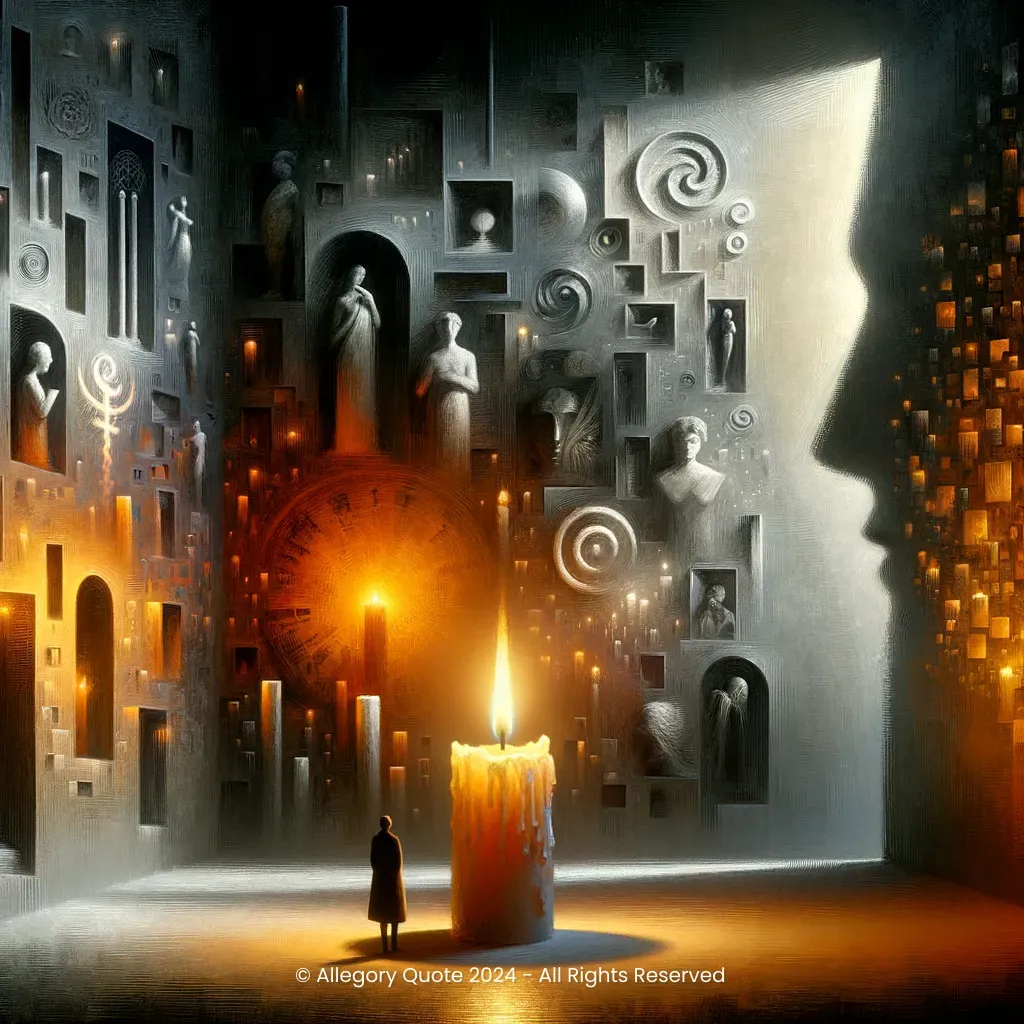
0
0
0
0
- Meaning
- This poignant line spoken by Macbeth reflects on the transient, ephemeral nature of life. Macbeth compares life to a candle that can be easily snuffed out, signifying the inevitable end of existence. The brevity of life and the inevitability of death are central themes here. Using "candle" as a metaphor, Macbeth conveys his despair and sense of meaninglessness after hearing of his wife’s death. It encapsulates the notion that life is ultimately short and fraught with inevitable darkness.
- Allegory
- The candle in the image represents the fragility and brevity of life. Its weak light struggling against the encroaching darkness symbolizes the ephemeral nature of existence and the inevitability of death. The dancing shadows are a metaphor for the fleeting moments and memories that constitute life. The distant figure reflects on these ideas, embodying a meditative stance on the transient nature of human existence, much like Macbeth in his soliloquy. The color gradient from warm to cool hues accentuates the inevitability of life succumbing to time and darkness, thus visually encapsulating the profound message of the phrase.
- Applicability
- This phrase can be applied as a reminder of life's short duration and the importance of making the most out of each moment. It's a call to focus on what truly matters and appreciate the time we have, fostering a mindset that values presence and mindfulness over material pursuits and other fleeting concerns.
- Impact
- This line has had a phenomenal impact on literature and popular culture. It has been frequently quoted to express the fleeting nature of life and the inevitability of death. The themes of "Macbeth" resonate strongly with existential questions that continue to be relevant, influencing countless works of literature, theater, and film.
- Historical Context
- "Macbeth" was written around 1606 during the early 17th century, a period characterized by significant political and social upheaval. Shakespeare's world was transitioning from the Renaissance into the early modern period, and themes of mortality, ambition, and existential reflection were highly pertinent.
- Criticisms
- Criticisms and controversies concerning this phrase often revolve around existential interpretations and whether life should be considered meaningless because of its brevity. Some argue that such a nihilistic view can dismiss the inherent value of life's experiences and relationships.
- Variations
- Across different cultures, the metaphor of a candle to represent life is quite prevalent. For instance, in many Eastern philosophies, the idea of life being transient is represented through the metaphor of a flickering flame. Various traditions interpret the brevity of life differently, focusing either on a spiritual journey or on the importance of the present moment.
-

The golden age is before us, not behind us.
-
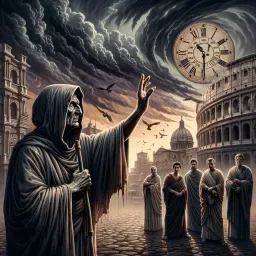
Beware the Ides of March.
-
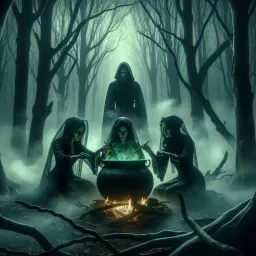
Double, double toil and trouble; fire burn and cauldron bubble.
-

What is past is prologue.
-

Cowards die many times before their deaths; the valiant never taste of death but once.
-

The course of true love never did run smooth.
-
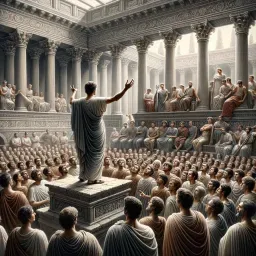
Friends, Romans, countrymen, lend me your ears.
-

All that glisters is not gold.
-

O brave new world, that has such people in't!
-

A little more than kin, and less than kind.
-

Brevity is the soul of wit.
-
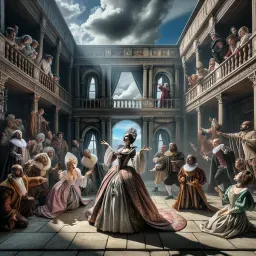
The lady doth protest too much, methinks.
No Comments